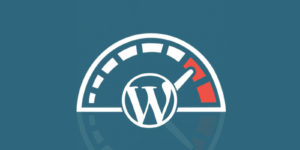Are you making every effort to squeeze the best possible performance from your WordPress website? It might be decent, and it may even be above-average, but that doesn’t mean it’s fast enough for its visitors — and even if it is today, that might change in the coming years. It’s all due to massive improvements in UX standard along with increases in the use of rich media.
Due to this, you should make every effort to not only keep up with the curve but also get (and remain) ahead of it. If your website stands out as notably faster than rival sites, it’ll have a solid chance of ranking well against them, and should perform excellently on mobile connections. Given the immense importance of mobile visitors, that alone is a compelling motivation.
So how do you speed up your WordPress website? Let’s run through some simple tips to get you moving in the right direction:
Remove unnecessary elements
How big does your website need to be? It exists to serve a particular purpose, whether that’s offering entertainment, providing information, or selling products, and you need to carefully gauge what each element does to further that cause. If your site is loaded up with huge images, flashy animations, embedded games, or complex functions, then those things will be taking up a lot of space and slowing down your load times — so are they warranted?
Website owners are increasingly accepting that their websites don’t need to include everything they bring to the table. There are other ways to reach people online (the retail industry has really pushed this concept through the pursuit of cross-channel sales tactics): for example, you can create a distinct repository of free resources and simply link to it from your main site. It’s more expensive, yes, but it allows you to keep your main site fully optimized.
Clear the database
Over time, the database that stores records of the activity of your WordPress site will inevitably become bloated and cumbersome. Tasks you’ve scheduled and forgotten about, revisions you’ve left unimplemented, and data left behind by long-uninstalled plugins — it all adds up and saps the performance of your site.
To combat this, you can use a plugin like WordPress Advanced Database Cleaner. There’s a free option, but the Premium version has some great additional options to give you the most comprehensive website cleanup. Simply install it, let it run, and reap the benefits.
Upgrade your hosting
Sometimes a website just doesn’t load very quickly because the underlying hosting system isn’t fit for purpose. Here’s a common scenario: someone sets up a website as a test, and chooses the cheapest hosting they can find. Pleasingly, the website really picks up steam and becomes somewhat popular — but the cheap hosting can’t handle it, so everything starts to chug.
If you think your hosting may be holding your WordPress site back, you have two options: contact your host to see if you can move to a higher performance tier (the cost will go up, but it’ll be worth it) or migrate your website to a different host entirely. The latter is relatively drastic and can be very inconvenient, but if your existing host just can’t give you the speed you need, then it’s an action you’ll need to take sooner or later.
Minify the code
The code that makes up a website isn’t always organized optimally, particularly when some of it is added through disparate plugins. The haphazard arrangement of code can result in duplicate entries, redundant sections, or bloated functions that are several times as long as they need to be. The minification process is about trimming your code and optimizing the loading process to ensure that your site’s resources are lined up as quickly as possible.
Thankfully, you don’t need to be a coder to use minification, as there are plugins that will do it automatically: here’s a useful comparison of several viable options, so you can read about what these plugins do specifically and figure out which one you should try.
These aren’t the only ways to speed up your WordPress website, but they are some of the most important and the easiest to implement. See what you can do.
